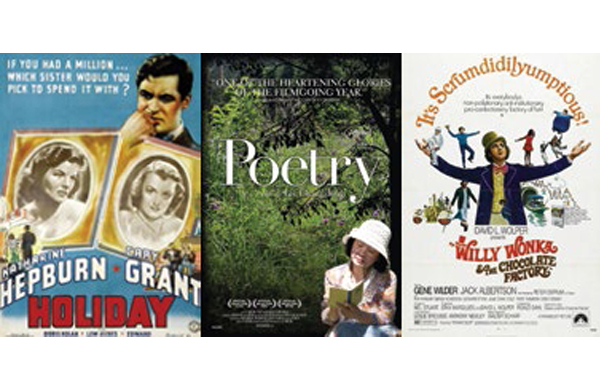Holiday (1938)
If you know and love Cary Grant and Katharine Hepburn — and you do, don’t you? — the delights of Bringing Up Baby and The Philadelphia Story probably need no introduction. But let us respectfully suggest that there is another pairing of these two icons that might be an even more enchanting movie. In Holiday, Grant plays a motivated, self-made young man full of dreams and ambitions, newly betrothed to the daughter of a very wealthy family. He imagines taking a “holiday” to find himself; his fiancée disapproves of such nonsense, but her misfit sister (Hepburn) is all for it — she’s created a safe place in the family mansion, a playroom where dreams can be nurtured and encouraged. Director George Cukor is in heartfelt sympathy with the idea of stepping out of the rat race, and there’s wonderful support from Edward Everett Horton and Jean Dixon as Grant’s fun-loving pals, plus Lew Ayres as Hepburn’s melancholy brother. You may just be inspired to go on holiday yourself. (Available on Amazon, Google Play and Vudu.)
Poetry (2010)
Where does a poem come from? Aren’t you supposed to be struck by poetic imagination, like a lightning bolt? And how are you expected to come up with something beautiful when your own life is a mess? These are the questions asked by a grandmother named Mija (played by Yun Jung-hee), who has enrolled in a writing class — she simply wants to finish one poem by the end of the course. Meanwhile, her world seems grim: Her sullen grandson is implicated in a terrible crime, and she is diagnosed with serious health issues. All of this makes it difficult to find the words to describe the beauty of a flower, but as the movie goes on, the act of composing a poem takes on an urgency that gives it life-or-death scale. Perhaps the creation of art is really that — life or death. This lyrical yet tough-minded 2010 film by Korean director Lee Chang-dong is a gem, and its lesson about finding meaning and solace in the imagination is honestly earned. (Available on Fandor.com, Amazon Instant and Netflix.)
Willy Wonka and The Chocolate Factory (1971)
It’s not hard to guess why the musical adaptation of Roald Dahl’s children’s book is so fondly remembered by a couple of generations. The fantasy of childhood magic, the colorful designs inside the great candy factory, the catchy songs — and the appeal of “pure imagination,” as Mr. Wonka himself sings it: “There is no/Life I know/To compare with pure imagination.” The movie is so wild (especially in contrast to the humble existence of Golden Ticket winner Charlie), it can’t help but fire up the brains of children and adults alike. In fact, a common shared reaction of grown-ups re-visiting this movie is to marvel at just how weird it actually is, especially a practically psychedelic monologue delivered during an out-of-control boat ride by the great Gene Wilder, whose starring turn as the chocolate-maker is a classic. But maybe that craziness is liberating, too — at any age. (Available on Amazon, Google Play and Vudu.)



